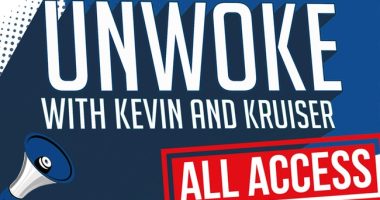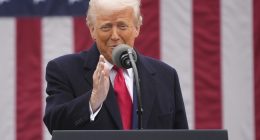It turns out that masks work for some people, but as a factor in the epidemiological model it has little explanatory power. A doctor can prescribe a mask for a patient, but a bureaucrat should not for a population.
Shocking to see this take down of masks on CNN, wow. pic.twitter.com/1Yrb5lSEvp
— Eli Klein (@TheEliKlein) September 3, 2023
The bureaucrat lacks the specific individual information that would make masking appropriate. Without the target information the bureaucrat must carpet-bomb, not precision strike, with all the collateral damage blanket coverage entails. I think Fauci’s best excuse was that he didn’t know that he didn’t know. The authorities began with certain assumptions, but were ignoring the Bayesian and not updating the initial expectations based on a posteriori experience fast enough. This is a known problem in decision making, one perhaps most elegantly summarized by the late Donald Rumsfelt.
as we know, there are known knowns; there are things we know we know. We also know there are known unknowns; that is to say we know there are some things we do not know. But there are also unknown unknowns—the ones we don’t know we don’t know. And if one looks throughout the history of our country and other free countries, it is the latter category that tends to be the difficult ones.
Read Related Also: What Does the White House Call the Border Situation? KJP Won’t Answer That Question.
I have used this idea frequently. “One of the most subtle threats to any civilization is a decline in its ability to approach the unknown. The undiscovered is as important as the known. If the knowns are compiled in an encyclopedia, the compendium of things ‘we don’t know about’ has been called by some the reversopedia. Vital as it is, how one may reasonably ask, is it possible to map terra incognita?”
The lists of unsolved problems that every field of inquiry– astronomy, biology, chemistry, computer science, physics, etc.– seems to throw up continuously, allows us to trace the boundaries of ignorance. Mathematics, for example, generates questions in each branch (i.e. algebra, analysis, game theory, topology) for which no one yet knows the answer. Indeed, the process of inquiry seems to create more questions for each one it answers. It seems impossible to expand the encyclopedia without simultaneously enlarging the reversopedia.
While this has no fatal implications for inquiry itself, an expanding reversopedia creates serious political problems for ideologues. Politics is, after all, mostly about making promises, assuring the public of certain solutions if only politicians are given X dollars to do it. But if it turns out that some scripts can’t be written in advance then the authority of the Plan is undermined and we must content ourselves to surviving another day. For example, a Harvard Medical School article on the COVID-19 pandemic says the disease, rather than conforming to expectations, keeps mystifying the experts with new twists and turns.
“Historically, the profit motive and military/strategic necessity have overthrown more shibboleths than most everything else combined,” I observed. Reality is a better teacher than authority. The speed at which we learn and our ability to constantly re-examine our assumptions may be the most important intellectual attribute of all. The next time we come up against the unknown, we should be more careful about our assumptions.








